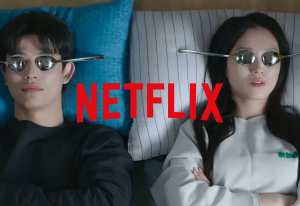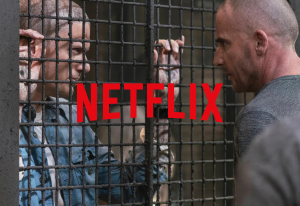Black Panther has started a discussion that goes far beyond the usual Marvel movie discussion. The launch of Marvel’s first black superhero movie is a milestone that has created massive feedback – some of it good, some of it intensely critical.
Videos by ComicBook.com
Indeed, director Ryan Coogler’s film raises many deep thematic ideas about race and the black experience, but not everyone seems to agree with Coogler’s interpretation of the Marvel Comics source material, or the messages he worked into it.
But upon deeper examination, one idea becomes clear: Black Panther’s real thematic heart is a story about the importance of black family and its structure, relationships, and identity, on an ever-expanding scale.
Black Excellence

The first thematic building-block that Coogler and co-writer Joe Robert Cole introduce, is one that seems to be easily recognizable by all: Black excellence, as represented by Wakanda.
Behind the glitz, gloss, and stunning production design, Wakanda is a metaphor: This is the potential of black culture, if not hampered and harmed by the evils of oppression. It’s something that National Review‘s Armond White seemed to miss, in his critical takedown of the flim. To Mr. White, Black Panther represented silly Afrocentric fantasy, sold as a commodity; a dangerous fetishation of Africana exoticism, at the expense of confronting real modern racial concerns.
Given the history of Africa in cinema, maybe that’s a discussion to be had; however, Marvel’s fictional African kingdom isn’t just fulfilling a metaphor of black excellence with its fantastical elements like superpowers and advanced technology: it’s in the details of how the Wakandans dress, speak, and behave that elevates the culture above Afro-pop fantasy. For example:
.@Lupita_Nyongo describes the special world of “Black Panther.”
— The Daily Show (@TheDailyShow) February 23, 2018
►Extended interview: https://t.co/I1ZWPR7Fvr pic.twitter.com/w7BkgYMqWD
These subtle but crucial details help to reinforce the metaphor of what Wakanda is, and the thematic resonance of that Wakandan proclamation about ‘showing who you are,’ or ‘who we are.’ Wakanda is a depiction of fully black cultural potential being realized, which then leads to a deeper examination of what made this black excellence flourish – and the ugly realities for so many black people who have never been able to enjoy such an ideal.
Coogler’s Story

Right now, one of the serious cultural debates (particularly in black culture) surrounding Black Panther is the film’s depiction of the conflict between Erik Killmonger and T’Challa. For critics like Boston Review‘s Christopher Lebron, Black Panther is a film that elevates African culture, at the expense of slamming its close cousin, African-American culture. Breitbart New’s review of the film echoed a similar sentiment as Lebron (who is an African-American scholar), by calling Killmonger’s character a villainous representation of the Black Lives Matter movement. These two echoed sentiments (from very different sources) about Black Panther‘s depiction of African-Americans creates a necessary discourse on, in particular, how/why Erik Killmonger is depicted the way his is.
It all goes back to the filmmaker. Ryan Coogler’s thematic focus as a director (like so many other greats) is pretty singular: it’s always about the good, bad, and ugly sides of family. Fruitvale Station was all about a very imperfect young black man trying to do better by his family (mother, girlfriend, daughter) on the day his life was tragically stolen; Creed was about a young black man trying to find a family he never had (including a strong mother and girlfriend), by way of legacy. Both of these roles were played by actor Michael B. Jordan, which makes Black Panther he and Coogler’s finale to a thematic trilogy.
The Impact of Identity

Remembering that family is the thematic heart of Coogler’s stories: Black Panther’s Shakespearean drama over the throne of Wakanda, within the metaphorical construct that Wakanda represents, is really a statement on identity.
If Wakanda is an ideal of black excellence, Killmonger is a statement on how far away from that ideal black people can fall, without the advantages that Wakandans had; not just technology, but a shared cultural identity that has flourished. From the cross-arm greeting, to cultural idioms like “Show me who you are,” Wakanda is a strong, proud, black family, first and foremost.
It’s important to remember that Killmonger is never depicted as being less intelligent or strong than his African cousins – quite the opposite, in fact. Killmonger is repeatedly shown in the film to be just as cunning and powerful as T’Challa, but what ultimately determines their respective fates is family: T’Challa is saved and redeemed by his family, while Killmonger has no true family ties, and is consumed by the pain of that emptiness and loss. Erik is cut off from his native culture (a nice metaphor for some of slavery’s deepest and longest-lasting harms) and used to serve America’s darker imperial whims (special ops). The life of poverty, racism, and political oppression twists him badly, with no cultural support system to offer counter-balance.
For Coogler, the role of family is clearly one of the greatest shaping influences of a black man. Thematically speaking, Black Panther is a statement on how just how disparate the lives and attitudes of those men are, depending on the support system that’s behind them (or not).
Fathers & Sons

Black Panther makes puts a fine thematic point on its statement about the impact of identity on a black man, during some of the film’s most powerful scenes: the relationship between fathers and sons. It is, again, also one of the most common themes in Coogler’s works, as his first film featured a fatherless young man trying to learn to be a father himself (Fruitvale), and the second featured a fatherless young man trying to find himself, by way of living up to his father’s legacy (Creed). In Black Panther, we see a return to both of those thematic arcs.
Black Panther‘s main conflict between T’Challa and Killmonger is really a story about fathers and their legacies – or, thematically speaking, the legacy that modern black men have inherited from the previous generations (or lack thereof). For T’Challa, that is a black man who had a strong father figure in his life, and is plagued with doubt about whether he can live up to what he initially thinks is a shining and infallible paternal legacy. During the film, T’Challa must learn that his father was as flawed as any man (maybe more than most), and learn to build his own legacy, while still finding a way to love and respect the true nature of his dad.
Killmonger, on the other hand, is much like Jordan’s Fruitvale character arc: a young black man, trying to be something he never had fatherly instruction on how to become. Coogler has repeatedly examined the pain and anger that comes from that struggle, communicating in his films how it can derail a black man’s life in horrific ways. The dream sequence where Killmonger meets his father N’Jobu again is especially heartbreaking, as the performances from Michael B. Jordan and Sterling K. Brown echo an entire social reality about the erosion of the black family in American society (as denoted by the scene’s location in Killmonger’s drab Oakland, CA, project housing home). In particular, there’s commentary on the separation of black fathers from their children, whether through mass incarceration or other means (death). These are moments where the Marvel fantasy falls away to reveal something much more crucial and important – thematic messages that have resonated with viewers in a big way.
Black on Black Violence

Pieces like the aforementioned Breitbart article by John Nolte try (either subtly or flagrantly) to raise the issue of how Black Panther deals with the issue of black-on-black violence. There’s many an argument about how the T’Challa vs Killmonger rivalry is a depiction of the black community’s own cultural in-fighting – whether it’s the tensions between Africans and African-Americans, or the invoking of places like LA or Chicago, which are now trotted out as political proofs. Yet, in the actual context of the film, all that black-on-black violence definitely has a point.
As broken down above, the narrative of Black Panther not only doesn’t treat black-on-black violence obliviously or frivolously: it actually confronts it head-on right from the start, and transforms it into a powerful thematic subtext.
The film opens with a flashback that sees king T’Chaka kill his brother N’Jobu, setting the story’s T’Challa / Killmonger rivalry in motion. However, it’s also a major thematic beginning, in that it establishes a clear conflict between Africans blessed with cultural foundations and kinship, versus African-Americans who lack those unifying elements. The “black-on-black violence” that fills the film thereafter is also metaphor for a splintered family (T’Challa / Killmonger as African and African-American avatars) going through the ugly process of reconciliation (more on that later).
Black Unity

As a control in this thematic experiment, we also get to see a different side of black-on-black conflict, as represented in the subplot of T’Challa and M’Baku, leader of the Jabari tribe. An early battle sequence between T’Challa and M’Baku reveals a much different sort of conflict, one that actually demonstrates some black-on-black respect and honor. T’Challa refuses to kill M’Baku in ritual combat because M’Baku is a good leader and a true Wakandan, and that familial bond of culture (even between different tribes, gasp!) is a sacred paradigm. It’s further proven when M’Baku wholly reciprocates that bond later, not just saving T’Challa’s life, but fighting by his side to keep Wakanda’s culture from being perverted.
The violence that Killmonger does is just as important. Killmonger has none of the cultural ties that M’Baku and T’Challa share, and in fact hates his heritage (which is to say, a form of self-hate) after it cost him his father. In one of his best monologues, Killmonger describes going to kill for the oppressor’s country (his military service), and the irony of being made to kill his own people on some missions in the African continent. He is aware of the ugly twisted reality (indeed he reflects it in his own body), but his own self-hate, pain, and loneliness cut him off from truly being able to reconnect with Wakanda and his cousins.
Killmonger is an American-made product, who was trained to see black people through the lens of racial bias and/or disregard, which are still major cultural issues of today. Scenes of Killmonger’s violence against Wakandans are supposed to be more affecting and brutal: his view of them as lesser to his power and painful experience in an oppressor’s world, is the thematic opposite to T’Challa’s cultural unity with the likes of M’Baku. It’s also (albeit less effectively explained) why T’Challa’s best friend W’Kabi is willing to accept the violence and cultural reckoning that Killmonger brings: W’Kabi’s family was murdered by Ulysses Klaue, as a result of N’Jobu’s actions, and the royal family never successfully repairs that strained bond. In other words: W’Kabi’s sense of black unity is hard to maintain when his fellow Wakandans don’t deliver him the retribution promised against Klaue. When Killmonger does the deed, W’Kabi’s idea of “black unity” or “family” takes a major shift – and maybe rightly so.
Black Girl Magic

If you didn’t pick up on the breadcrumbs being left before: Ryan Coogler has always made sure to emphasize the cultural importance of women of color, in all of his films. Black Panther is simply the biggest and best portrait of the director’s affinity for that “Black Girl Magic.”
Characters like Shuri, Nakia, Okoye and her Dora Milaje forces are now breakout hits of Black Panther, riding a timely new wave of feminist awakening, in light of movements like #MeToo and #TimesUp over the last year. But rather than pay lip-service to female power, Black Panther makes them the true heart of the black family.
As so many male viewers have pointed out with amazement: The Black Panther would’ve been nothing without the ladies in his life. Indeed, the film clearly depicts the crucial moments of both leadership and support that the women of Wakanda offer T’Challa, be it emotional (Queen Romanda), physical (Okoye), political (Nakia) or intellectual (Shuri). Covering all those bases wasn’t just a novelty to help sell more Marvel action figures: they’re a statement on Coogler’s own experience having strong women in his life – one that is echoed in the characters from his other two films, played by the likes of Tessa Thompson (Thor: Ragnarok), Melonie Diaz (Charmed), Octavia Spencer (The Help) or Phylicia Rashad, who are all successful and/or awarded artists, as well as confident, outspoken social activists in their own rights.
Black Panther’s mix of rising female stars (Walking Dead‘s Danai Gurira, Black Mirror‘s Letitia Wright), and already-acclaimed talent (Oscar-winner Lupita Nyong’o and Golden Globe-winner Angela Bassett), is a group of clearly powerful and/or captivating women, both on and off camera. Coogler reminds us pretty firmly and pretty often, that the heart and soul of the black family are truly its queens, and they are fierce.
Who “WE” Are

Boston Review‘s Christopher Lebron ultimately comes to the conclusion that Black Panther is a cultural failure, citing the following:
“…the bad guy is the black American who has rightly identified white supremacy as the reigning threat to black well-being; the bad guy is the one who thinks Wakanda is being selfish in its secret liberation; the bad guy is the one who will no longer stand for patience and moderation—he thinks liberation is many, many decades overdue. And the black hero snuffs him out.”
As stated, the T’Challa vs Killmonger conflict of Black Panther has raised a lot of controversy, but it’s important to track the film’s thematic thread about family all the way to the end, and examine its implications.
First of all, it’s somewhat disingenuous to say that T’Challa “snuffs out” Killmonger. Black Panther and Golden Jaguar have a violent battle in the heart of Wakanda’s prosperity (The Vibranium mine) and ultimately Killmonger is felled by a fatal spear-blade blow to the chest – the broken spear representing his broken heritage – which is the actual blow to his heart, on a thematic level.
Once that blow has been felt, the anger and fight are gone from Killmonger. He heartbreakingly recounts how the heritage he has now plunged into violence and chaos was the dream his father had sold him on – the thing he thought he’d wanted all his life, but just couldn’t grasp. (Again, this a powerful thematic rumination on African-Americans at once both yearning for, and rejecting, their cultural heritage).
T’Challa actually tries to correct the mistakes of the past, and takes Killmonger up to see a Wakanda sunset, offering a full, beautiful view of his heritage. T’Challa thinks that maybe Wakandan tech can heal Killmonger (a thematic nod to having the lost boy reconnect with his cultural identity), but Killmonger refuses. Because of his experiences as a fatherless African-American, coming up through a violent and bias American order, Killmonger recognizes he can never truly come home, and his actions against Wakanda will see him incarcerated for his crimes. In a final thematic statement, Killmonger delivers some heavy lines about having learned that it’s better for him to die like Africans who jumped from slave ships, rather than become a slave (or slave again). He pulls the spear loose from his heart, symbolizing the release of all his cultural and identity pains.
What Lebron’s review of Black Panther seems to ignore is how Killmonger’s story and death play into the thematic narrative of the film. It’s not a death that goes without impact: in fact, Killmonger’s death is the catalysing event that finally makes T’Challa take a hard, reflective look at the principles that have defined Wakanda. In essence, Killmonger forces T’Challa to examine the “We” in Wakanda’s proud “Who we are,” proclamation.
Ultimately, T’Challa follows the wisdom of his strong and compassionate black female counterpart (Nakia), and must expand the notion of “family” to mean more than just those in Wakanda’s boarders, or those who reside in the capital city. It starts with bringing in the Jabari Tribe and M’Baku to the high council (after many years of them being ostracized), and continues into a worldly concern for the plight of black people everywhere – especially those who grew up in standards like the ones Killmonger suffered.
In the end, Black Panther thematically posits that there is a bigger “We” out there which must be united – and that message is having an effect within the black community:
********
What did you think of Black Panther? How did you interpret the cultural themes of the story? Let us know in the comments!
Black Panther is now in theaters. It will be followed by Avengers: Infinity War on May 4th, Ant-Man and the Wasp on July 6th, Captain Marvel on March 8, 2019, the fourth Avengers movie on May 3, 2019, the sequel to Spider-Man: Homecoming on July 5, 2019, and Guardians of the Galaxy Vol. 3 in 2020








